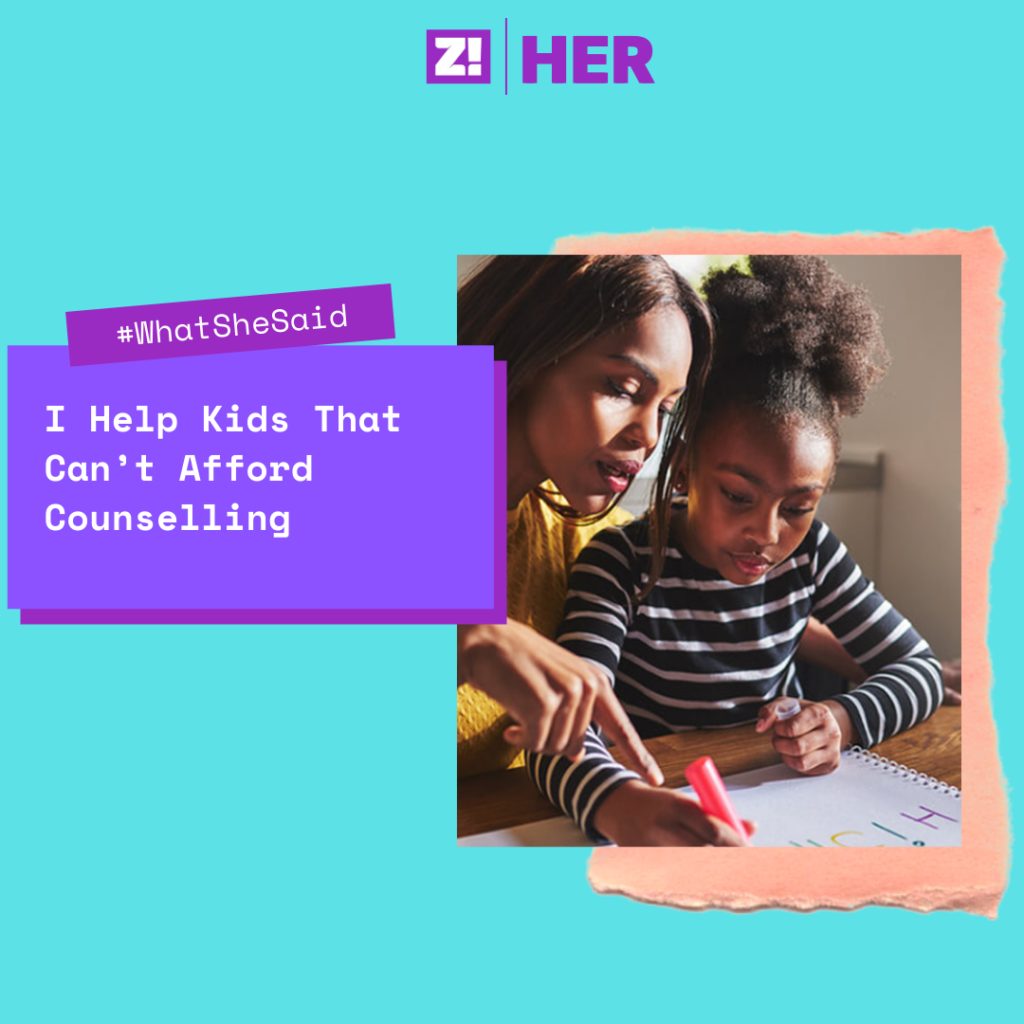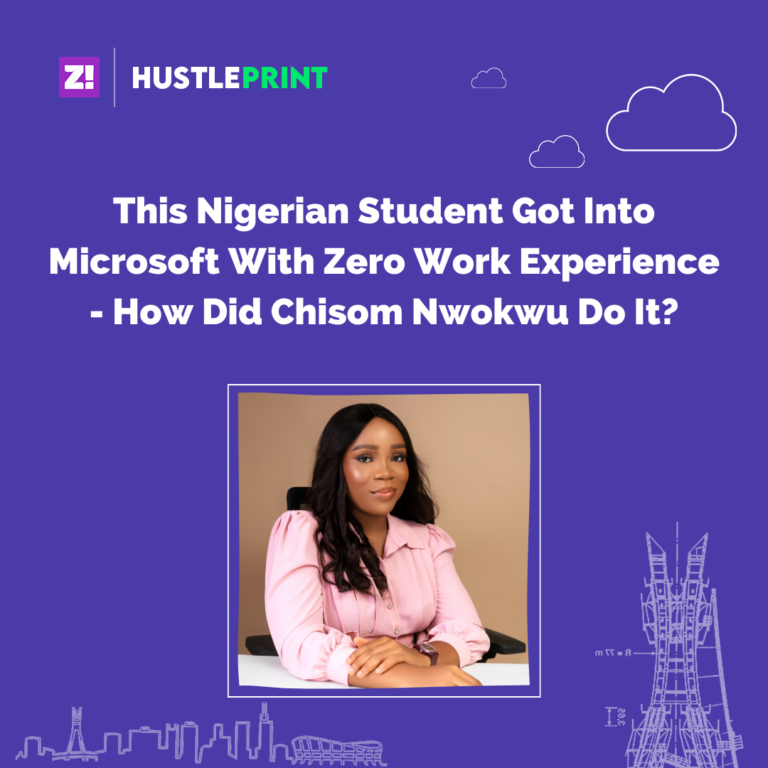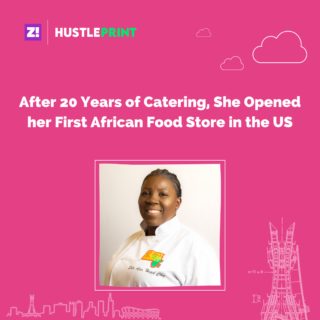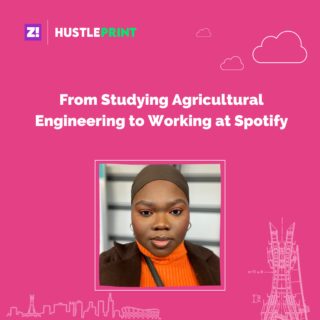Navigating life as a woman in the world today is interesting. From Nigeria to Timbuktu, it’ll amaze you how similar all our experiences are. Every Wednesday, women the world over will share their experiences on everything from sex to politics right here.
The subject of today’s What She Said is a 31-year-old government school teacher. She talks about learning how to be a loving person from her late mum and becoming a guidance counselor who looks out for kids who don’t have a lot of people looking out for them.

What’s one word that describes you?
Happiness. There are very few moments you’d catch me feeling overwhelmed or sad — I’ve always loved holding on to my joy.
In this Nigeria?
LOL. As a child, I grew up with a mum that was always happy — so I guess it stuck. For her, happiness came from giving to people. She loved to cook and feed people at church or in our compound. I remember her singing around the house as she cooked and packed up food or items she was about to give away — that was her joy. My mother never let anything get to her and knew how to make a bad day something to laugh about. I remember my dad leaving us when I was about four or five, and she didn’t wallow about it. It was so baffling to see her carry on like nothing had happened. Nothing could ever take away my mother’s joy.
She sounds incredible.
She was! I thought it was annoying when I was younger though. Especially when she wouldn’t leave the house without money or provisions to give someone in the church or neighbourhood. Eight-year-old me wondered why happiness wasn’t just about myself. I was sure my version of happiness would be different — only about me. But all of that changed when I saw the way people talked about her after she passed. How they loved her. The way she lived life made a way for me to experience a lot of kindness from the people around me. It was difficult losing her, but it really showed me that maintaining your happiness and giving love is not a waste.
I vowed I would do the same: love unconditionally and be happy.
That’s so sweet.
We — my mum, little sister and I — lived with our grandma who continued to take care of us after my mum’s death. The hardest thing about losing her was just going through puberty — periods and boys were not something grandma was deeply interested in. Grandma couldn’t teach me about using sanitary towels; all you needed was a clean cloth. I had to do a lot of reading for my sister and I.
We didn’t have to stress too much about money because my mother left some savings behind. When we did run out of money, Grandma wasn’t even interested in letting us work. But I couldn’t let her take all the burden. So the first thing I did was to secretly sell all the shoes my mother left behind. I was in the choir at church, so I sold it to all those sisters that were trying to impress our choir master. I think I made about ₦20,000, and then used it to buy things in the house. I told our grandma it was my mum’s sister that gave it to us. I was nine.
How did you go from selling shoes to church choir babes to helping kids with mental health?
I found out that talking to people made me happy. Getting to the point where someone was comfortable enough to open up to me felt good because it meant they trusted me. Their sadness made me feel like I wasn’t as alone at that phase of my life. Happy ones made me laugh and forget, for a moment, that I didn’t have my mum with me. Those moments gave me ginger. \
All my money making stunts behind grandma’s back also led me to counselling. It started from selling my mother’s old shoes and then offering to clean a friend’s closet in school every weekend to earn more money at the same time. I kept up with the cleaning gig at my friend’s place until my mum’s sister asked us to move in with her in JSS 1. She was stricter than grandma about not looking for work. I tried to follow her rules, but my body couldn’t take the cycle of going to school and then coming home to eat and sleep — I needed to work. So my next money making stunt was in JSS 3 as a self-proclaimed therapist for ₦50 in each session. All my mates then were having relationship drama, and even if I couldn’t relate, I was the go-to person in class. Maybe it’s because I was one of the few people that didn’t have a relationship or because I was usually the talkative in class. Either way, my classmates trusted me enough to talk about their feelings. Working through their silly arguments made me happy because I got to help them understand each other better, and I was really good at it — I read a lot of romance novels in secondary school so I knew the exact words an angry boyfriend or girlfriend needed to hear.
LOL. Fraud. What kind of problems did lovers have in JSS 3?
JSS 3 boys didn’t have liver — most of the guys just didn’t know what to say to the girls. So it was my job to connect them with the babes in the class. I would either write love letters or tell them to buy gifts. I remember helping my best friend land one hot babe in our class back then. I sabi work.
Let’s NFT this sis. Did you continue your self-proclaimed counselling role after secondary school?
I went to study guidance and counselling education in uni.
My counsellor!
LOL. Talking to my friend’s in JSS 3 about love and relationships, made me open to the idea of working as a psychologist. When JAMB jammed me for four straight years after SS3, I spent the years in between learning to sew as a skill just in case I didn’t make it. Then I got admitted in 2014.
In my first year, I was more focused on growing a business so I could earn money to survive on campus — I started buying underwear from Idumota to sell, cooking in the hostel and sewing. Everything felt good until I saw my CGPA at the end of the semester: 1.23/5.00. It was below a third class, so I knew I had to focus. As I began to listen and learn, I gradually fell in love with the counselling. I wanted to help kids that were too poor to afford therapy. I didn’t even think I would really be interested in practicing until I started my Internship at a public school in Bariga called Jagumolu Girls Grammar School three years later.
At the school, there was no counsellor helping the girls talk about periods, relationships or any kind of mental health challenge. Teachers just looked at them as badly-behaved children half the time, but all most of them needed was someone to talk to. I got close to them, and they gradually opened up about their homes, boys and girls they liked and their fears. The six months with Jagumolu Girls really opened my eyes to how much the less-privileged children in government schools need to be counselled — they needed someone to be a safe space for them. I became passionate about the cause and began to search for a job as a government school teacher after my NYSC in 2019.
How did that go?
Nothing clicked for me until after two years. Before then, I worked as a gas station attendant and met my husband — he was my boss at the time. As a gas attendant, I worked on getting customers to clean and cook over the weekend. Whenever I didn’t have a customer’s house to clean or cook at, I focused on either sewing or connecting women to cheaper products they needed in Idumota market, for a fee, as well as clients to sew outfits for. In 2018, I was doing every hustle I could get my hands on while I submitted job applications as well. I had applied for a teaching role advertised by the state government in 2018 and was hoping for a call back from them, but I didn’t get one until 2021.
I picked up and a woman spoke to me about coming in for an interview the next day. I thought she was one of those scammers that call for jobs just to kidnap you, so I hissed and cut the call. She called back and told me to calm down. She reminded me about the open call for teachers by the Lagos state government in 2019 — that’s when it clicked and I apologised for being rude.
I drove from Ajah to Ikeja by 4 a.m. so I could beat traffic. I got there about 6 a.m., but the room was already packed. I had my interview after about six hours of waiting. On my way out, I saw a woman was pacing around asking people to help her with her interview. Nobody was responding, so I decided to stay back and tell her the questions I remembered from my interviews.
Please don’t tell us the woman got the job…
LOL. One week after the interview, I was called back into the office at Ikeja. I went in with excitement hoping to collect my appointment letter. I even dressed up so I could oppress my haters. I walked into the reception ready for the good news, but the secretary just casually told me they couldn’t offer me a job because there was no position for me. She didn’t even look up when she said it. I was so confused — why did they have to call me all the way from Ajah? As I was about to storm off, a lady tapped me from the back saying hello. I turned around trying my best not to yell “What?”. It turned out to be the woman I helped on the day of my interview. She asked why I looked so angry and I explained the situation. It turns out that she already got her offer letter and had been working there for a week. So she offered to speak to someone on my behalf. I mean, why not? I didn’t have anything to lose again and it was clear that I needed connections I didn’t have to scale through, so I let her .
I sat at the reception waiting while she left the room with my name written on a piece of paper. 30 minutes later, she walked into the room with a piece of paper. It was the appointment letter for my position as a guidance counselor teacher. I asked her how she did it, but she gave a vague answer about having a friend in the office. Honestly, I didn’t even care if the letter dropped from heaven at that point — I was just happy to have the job. Make I no dey question person wey help me.
LMAO. That’s actually mad.
It was! Seeing my students open up to me is the most fulfilling part of my job. There are moments we cry during sessions, but it’s part of the process. I open up about my life — I tell them about my mother, working to get by and just finding happiness in the little moments with people. I love knowing that they don’t feel as trapped or alone when we talk.
I want to have a foundation that is open to children that need love and support. My mother did everything she could to help people and that is exactly what I hope to spend the rest of my life doing. That is how I want to keep celebrating her life that was so full of joy and happiness.
COMPONENT NOT FOUND: donation



